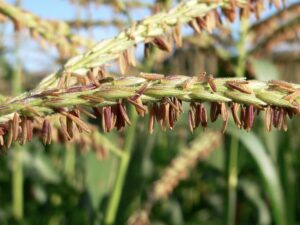The form of agriculture symbolized in Ziraat is based upon an ancient model, adopted by European nations, and thrust upon indigenous cultures around the world during colonization. This assault continues today, on an international scale, fueled by corporate and political interests. Due to an increased awareness of the travesties inflicted upon these cultures, both intentionally and not, many people are working to take responsibility for both historic and current harms by changing their thoughts, speech, and actions. This, as you know, is difficult work. In traditional Ziraat terms there is much ploughing to be done.
 But the term ploughing, in particular, can raise hackles, as tillage brought destruction to sacred lands and contributed to destroying a way of life for indigenous cultures around the world. There are many traditional forms of agriculture that don’t rely on ploughing or harrowing. For instance, the use of fire was one means employed to clear the land and provide an environment conducive for the plants being cultivated. As the scale of agriculture was smaller than most of today’s farms, digging sticks sufficed to probe the earth to create planting sites or to harvest roots and tubers.
But the term ploughing, in particular, can raise hackles, as tillage brought destruction to sacred lands and contributed to destroying a way of life for indigenous cultures around the world. There are many traditional forms of agriculture that don’t rely on ploughing or harrowing. For instance, the use of fire was one means employed to clear the land and provide an environment conducive for the plants being cultivated. As the scale of agriculture was smaller than most of today’s farms, digging sticks sufficed to probe the earth to create planting sites or to harvest roots and tubers.
We are beginning to understand how the massive soil disturbance caused by ploughing has severe consequences for the sustainability of fertility, soil structure, water retention, and the integrity of fungal networks. In response to this increasing awareness, techniques are evolving that minimize the need for tillage. Most of these techniques can be applied to small-scale agriculture but are only beginning to be adapted for larger commercial-scale production.
People attuned to indigenous and other alternative agricultural practices may not find resonance with, or may even be offended by, some Ziraat terminology. However, the Ziraat teachings of Hazrat Inayat Khan use the tillage symbols of the plough and harrow extensively, and by eliminating those terms we would lose the spiritual wisdom contained within the few Ziraat teachings we have. We, therefore, have retained these traditional terms, but implore practitioners of Ziraat to recognize that these terms are being used symbolically, not literally.
The symbolic meaning of ploughing has to do with self-analysis and releasing attachments to prepare for the sowing of new seeds of inspiration. When working inwardly with ploughing, one disturbed by the term might substitute the term “observing” or “surveying”. Before beginning an agricultural endeavor, it is important to observe the condition of the field. This requires looking both at what is on the surface as well as the conditions hidden underground, or speaking symbolically, observing the condition of the conscious and subconscious mind.
Harrowing is the final preparation of the field before sowing. It is making the seedbed perfect. If one has trouble with the term harrowing, one could substitute preparing.
Those who have been involved with Ziraat in the past will notice that some changes in terminology have been made. The phrase “Owner of the Farm” can evoke negative historical associations with slavery, serfdom, or indentured servitude. We have chosen to replace “Owner” with “Sovereign”, in line with the change made to the Sufi Prayers from “Master” to “Sovereign”, for the same reason.
The original term “bondsmen”, later revised to “bondspersons”, has been replaced by the term “worker”.
Terminology affects the development of our consciousness, so it is important to update it over time. In the case of Ziraat, we found ourselves in the dilemma of seeing some of the traditional terminology as being very problematic, while not wanting to throw the baby out with the bathwater, as many of Hazrat Inayat Khan’s Ziraat teachings employ these terms. The changes made, and not made, are our attempt to find a middle ground.